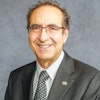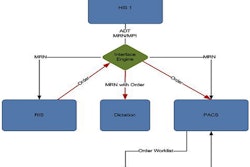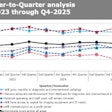Dear AuntMinnie Member,
U.S. radiologists are facing some of the most challenging times in the specialty's history, and things aren't likely to get any better with healthcare reform looming on the horizon.
Today we offer you two visions for surviving the forces that are reshaping medical imaging, both delivered in talks presented at this weekend's meeting in San Francisco of the California Radiological Society and the American College of Radiology's Radiology Leadership Institute.
First up is PACS pioneer Dr. Paul Chang, who discussed how performance measurement tools like dashboards and scorecards can help radiology practices fend off efforts to loosen their control over medical imaging. Such tools can help radiologists provide data on the key performance indicators required to prove that their facility is delivering cost-effective imaging. Learn more by clicking here.
Next up is Dr. Frank Lexa, who discusses the impending rollout of healthcare reform and how it will impact radiology. There's a lot for radiologists to be concerned about, Lexa believes, as the money to pay for additional healthcare services for 30 million people has to come from somewhere -- and radiology is a frequent target.
Of particular concern are the accountable care organizations (ACOs) that are a cornerstone of Obamacare. Radiologists will have to do more than just read films to succeed in the ACO setting, and may even get more of a role in determining when imaging should be used in which patients. Find out more advice by clicking here.
SPECT/CT guides node excisions
In the clinical realm, visit our Molecular Imaging Digital Community to read about a study published today in the Journal of the American Medical Association on the use of SPECT/CT to guide sentinel lymph node excision in melanoma patients.
German researchers used SPECT/CT in a group of 400 patients to guide surgeons who were excising lymph nodes in melanoma patients whose cancer had spread. The researchers were hoping to improve on the high false-negative rate of sentinel lymph node excision.
They found that patients who got the SPECT/CT scans had lower relapse rates than patients who got the standard of care. The hybrid modality produced other benefits as well -- find out what they are by clicking here, or visit our Molecular Imaging Digital Community at http://molecular.auntminnie.com.



















